Review of Four Seasons in Rome, by Anthony Doerr
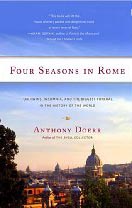 Four Seasons in Rome
Four Seasons in Rome
On Twins, Insomnia, and the Biggest Funeral in the History of the World
by Anthony Doerr
Scribner, New York, 2007. 210 pages.
Anthony Doerr won an award to come to Rome for a year to write. What a fabulous opportunity! The timing, however, was interesting — the fellowship began when his twin sons were six months old.
Four Seasons in Rome tells the story of that chaotic and amazing year when Anthony Doerr and his wife and infant sons got to live in the Eternal City. This wonderful book combines aspects of many types of memoir: the bemused blunderings and awe of a new parent, cross-cultural adventures and misadventures, musings about the writing process and the ways we avoid it, and the wonders of Rome.
I had an extra interest in the book, because the time our family visited Rome (our last family vacation as an intact family) was during the very year that Anthony Doerr was there — We were there after the Pope’s funeral, but before the next Pope was elected. So we saw a teeny tiny bit of what he mentions.
Here’s a little taste:
“Every few days there are moments of excruciating beauty. We are simultaneously more happy and more worn out than we have ever been in our lives. We communicate by grinning and pointing and waving food in the air. We don’t sleep as well as we used to. Our expectations (today I might take a shower; the #75 bus might actually show up) are routinely dashed. Just when we think we have a system (two naps a day; Shauna finds a rosticceria with chickens on spits that is open on Sundays), the system collapses. Just when we think we know our way around, we get lost. Just when we think we know what’s coming next, everything changes.”
It’s fun to vicariously share in Anthony Doerr’s experiences, not quite sure whether to envy him or to feel sorry for him — mostly glad I can enjoy it in nice comfortable book form.
Find this review on Sonderbooks at: www.sonderbooks.com/Nonfiction/four_seasons_in_rome.html
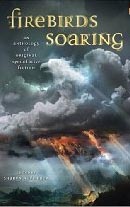 Firebirds Soaring
Firebirds Soaring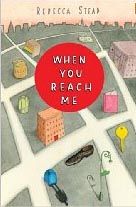 When You Reach Me
When You Reach Me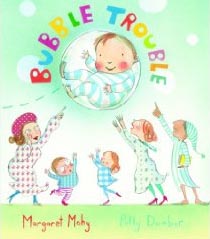 Bubble Trouble
Bubble Trouble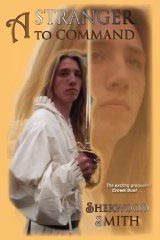 A Stranger to Command
A Stranger to Command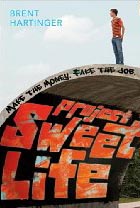 Project Sweet Life
Project Sweet Life